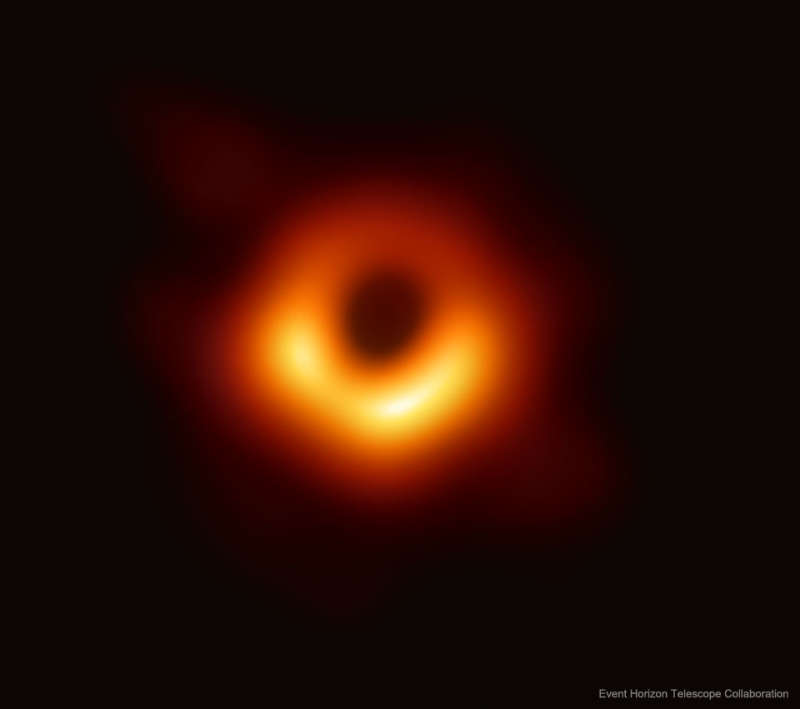Credit & Copyright: Event Horizon Telescope
Collaboration
Explanation:
What does a black hole look like?
To find out,
radio telescopes from around the Earth coordinated observations of
black holes with the largest known
event horizons on the sky.
Alone, black holes are just
black,
but these monster attractors are known to be surrounded by glowing gas.
This first image
resolves the area around the
black hole at the center of
galaxy M87
on a scale below that expected for its
event
horizon.
Pictured, the dark central region is not the event horizon, but rather the
black hole's shadow -- the central region of
emitting gas darkened by the central black hole's gravity.
The size and shape of the shadow is determined by bright gas
near the event horizon,
by strong
gravitational lensing deflections, and by the black hole's spin.
In resolving
this black hole's shadow, the
Event Horizon Telescope
(EHT) bolstered evidence that
Einstein's gravity works even in
extreme regions, and gave clear
evidence that
M87
has a central spinning black hole of about 6 billion solar masses.
Since releasing this featured image in 2019, the
EHT has expanded to
include more telescopes,
observe more black holes, track
polarized light,and is working to observe
the immediately vicinity of the
black hole in
the center of our
Milky Way Galaxy.
This week is:
Black Hole Week
New EHT Results to be Announced:
Next Thursday
1999 2000 2001 2002 2003 2004 2005 2006 2007 2008 2009 2010 2011 2012 2013 2014 2015 2016 2017 2018 2019 2020 2021 2022 2023 2024 2025 2026 |
Январь Февраль Март Апрель Май Июнь Июль Август Сентябрь Октябрь Ноябрь Декабрь |
NASA Web Site Statements, Warnings, and Disclaimers
NASA Official: Jay Norris. Specific rights apply.
A service of: LHEA at NASA / GSFC
& Michigan Tech. U.
|
Публикации с ключевыми словами:
black hole - черные дыры
Публикации со словами: black hole - черные дыры | |
См. также:
Все публикации на ту же тему >> | |
